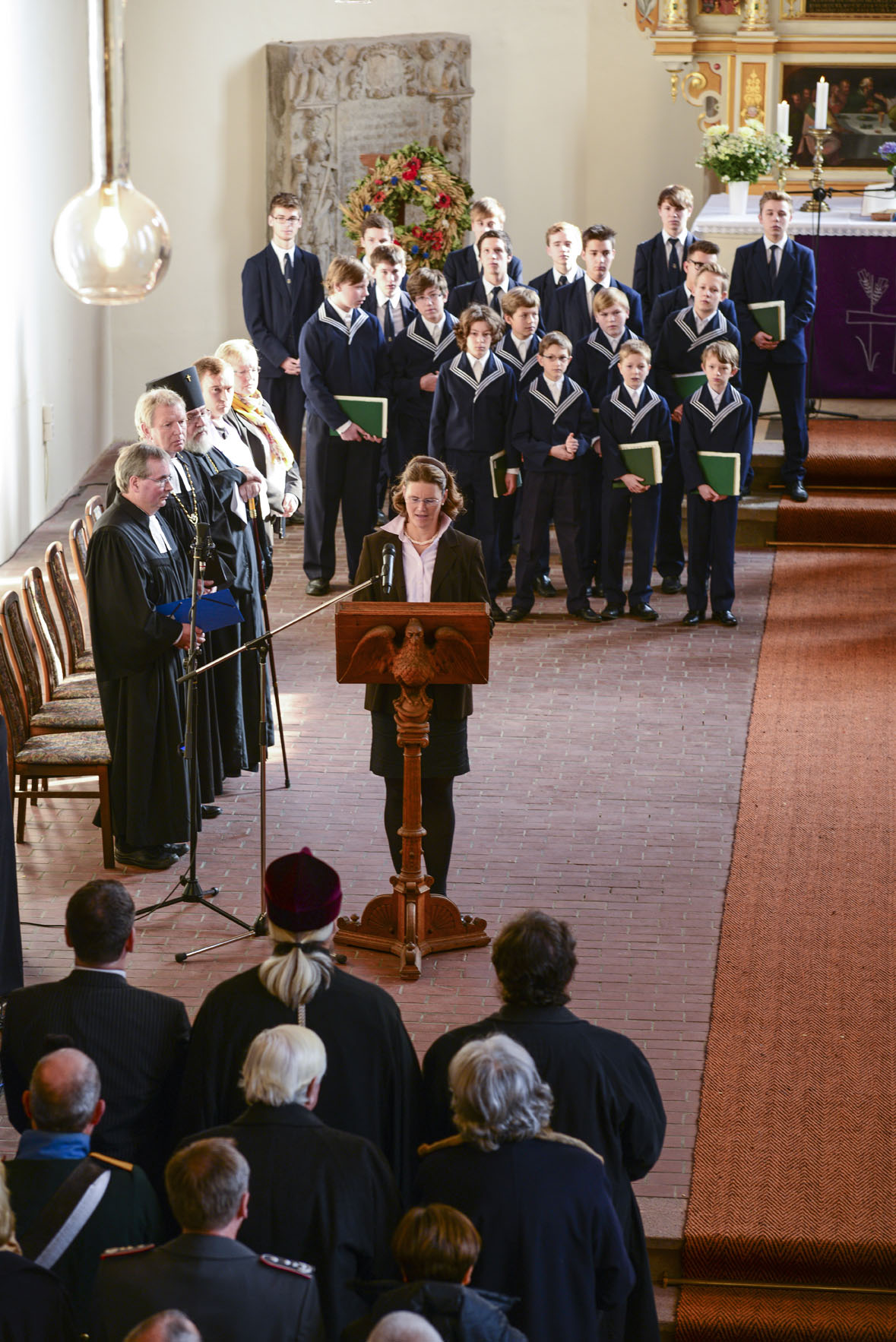200th anniversary of the battle of Leipzig
Commemoration of the 200th anniversary of the battle of Leipzig
The active participation of the princely houses at the commemoration of the „200th anniversary of the Battle of Leipzig" proves the strong attachment of the families.
To commemorate the battle and the soldiers killed in action with dignity.
 Lecture of Archduchess Eilika of Austria in St George’s Church in Rotha
Lecture of Archduchess Eilika of Austria in St George’s Church in RothaSeventeen members of former ruling houses came together in Leipzig for the 200th anniversary of the Battle of Leipzig, the battle ordained to be the first decisive engagement against the Emperor Napoleon. They reminded us of the 100,000 deaths of soldiers and civilian population in this battle, at the time the biggest open battle in the history of man. Their commemoration of the dead is as a result of their continuing consciousness of the historical responsibility of their ancestors, who acted decisively as ruling monarchs and generals. Two hundred years after the battle of Leipzig and nearly one hundred years after the dethroning of the European monarchies in Germany, Austria and Russia, a meeting like this has been made possible with the support of the Cultural and Environmental Foundation of Sparkasse Leipzig.
Europe’s princely houses, the Holy Roman Empire of the German nation, the mediatization of spiritual and secular territories and the historian’s favourite jawbreaker – Reichsdeputationshauptschluss - are bywords which illustrate what seems to be a long-bygone era. Why do the events of the 19th century still have such a strong impact on the people of Europe even today?
The ‘Holy Alliance’ between Russia, Austria and Prussia, was a strategic alliance of the three Christian dynasties, whose alliance was crucial for the success of the battle. The Austrian emperor played an essential role as protector of the Pope and the Catholic Church, the Russian Tsar as guarantor of the Orthodox church and the Prussian king as the leading protestant monarch of Europe and protector of the German Protestants. The monarchs acted as much as ever as protectors of their churches and the Christian west.
 Bishop Joachen Bohl and Archbishop Longin of Klin departing from St George’s Church in Rotha
Bishop Joachen Bohl and Archbishop Longin of Klin departing from St George’s Church in RothaThe defence of Christian values and traditions is visible today through the involvement of the families in the chivalric and Hospitaller orders of the knights of Malta and the knights of St John, after eight centuries of existence. Especially in these fraternities the royal families of Europe undertake a leading role supporting humane and social Christian values. Even today they carry major responsibilities - the present President of the German association of the Order of Malta is Prince Erich of Lobkowicz and the Chief Executive of the emergency service of the Order of Malta in Germany is Prince Karl zu Löwenstein. Members of the royal houses still hold many honorary posts today. These responsibilities are passed on over generations holding them together and encouraging them to act responsibly towards their country with consciousness of history. They are cultural sponsors of European heritage and of the basic idea that binds together nations, to protect this cultural property for future generations.
In the CommuniqueÌ of the princely houses drawn together at the closure of the commemorative events in October 2013 they write:
The large attendance of these families at the successful commemorative events of the battle of Leipzig are an indication that the awareness of bearing responsibility for the history, politics and culture of Europe has survived within the families. As long as one approaches the royal houses with an honest purpose, they like to deploy their experience as negotiators and guardians of European values in public.
Authors: Nikolaus Faulstroh, Maximilian Solms
Read more on the web pages: http://www.kultur-und-umweltstiftung.de
Presse



